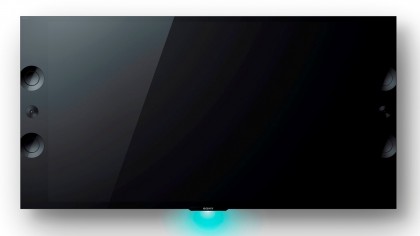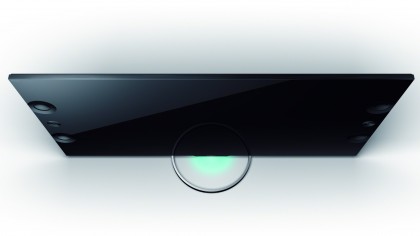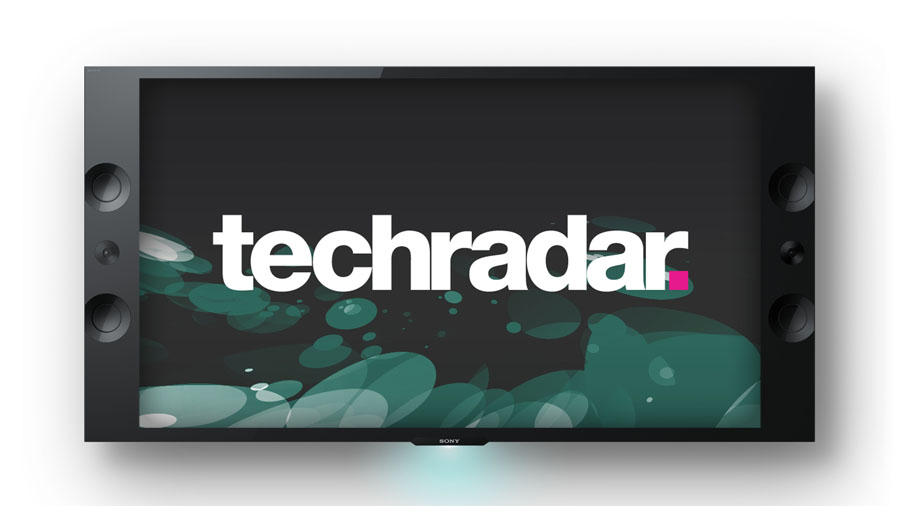TechRadar Verdict
One of the best performers with Blu-ray, let alone 4K, the KD-55X9005A is a standout winner with 3D, too.
Pros
- +
Pin-sharp 4K pictures
- +
Great Blu-ray upscaling
- +
Clearer passive 3D
- +
Excellent built-in audio
Cons
- -
Wide footprint
- -
Some motion blur
- -
Average remote
- -
SD upscaling struggles
Why you can trust TechRadar
Ultra HD is an expensive hobby. However, after a year or so of extortionate five-figure sums being bandied around, the new 4K format is finally beginning to slip from the bracket marked 'footballer' to one with a slightly less salubrious 'AV enthusiast' tag.
At the vanguard is this 55-incher, which has received an almost immediate price drop from £4,000 to £3,299, thanks to Toshiba's decision to sell its own 58-inch attempt at 4K for a mere £2,999.
With a screen that measures 55-inches in the diagonal, the KD-55X9005A is just about big enough - in our humble opinion - to make the best of Ultra HD sources (not that there are many of them). However, the KD-55X9005A has got something that rival Ultra HD TVs don't have; amazing speakers.
Boasting a 2.2-channel sound system - with two subwoofers on the rear and what Sony calls its Magnetic Fluid Speakers on each flank - the KD-55X9005A is quite something. It takes us back to the early days of flatscreen TVs, when clip-on speakers were common, and underlines that sound is at least as important as resolution in any attempt at high-end home cinema.
However, from a visual point of view we're not convinced that it works.
Firstly, why are there no grilles on the speakers? The inner rims - all done out in shiny gloss black plastic - tend to catch the light and can be a tad distracting. There's also the strong possibility that anyone with the money to spend on this telly will already have a better sound system at home.

We're also a little worried about the width they add to the already rather large footprint of the KD-55X9005A; though the bezel on the top and bottom measure just 23mm, they stretch to 127mm on each end. It makes the entire product stretch to 146cm, which is 22cm wider than Sony's non-4K range-topper, the 55-inch KDL-55W905A.
Sign up for breaking news, reviews, opinion, top tech deals, and more.
Certainly don't plan to swap-out even a 50-inch telly installed in a corner for the KD-55X9005A - it's so much wider. It's also worth considering that the KD-55X9005A has a completely circular stand that increases the depth from around 100mm (it's 58mm without the bulging subwoofers) to 405mm. The KD-55X9005A is beautiful, but it's big.
Aside from its headline-grabbing 3840x2160 pixels - which create about four times the resolution of a regular Full HD telly - the KD-55X9005A uses a Sony-tweaked LED panel called Triluminos.
However, in the absence of any native Ultra HD fare, the KD-55X9005A's key technology is perhaps its 4K X-Reality PRO upscaling.
But things are looking up for Ultra HD fans. Although our review sample of the KD-55X9005A came with a mini-computer that hosts Ultra HD clips, the company also sells its stop-gap Sony FMP-X1 4K Ultra HD Media Player for the brand's X900A Series of Ultra HDTVs, though it's only sold in the US (for US$699, which includes 10 pre-loaded films in 4K).
Sony looks to be covering all bases with its recent announcement that its Video Unlimited service - available on the KD-55X9005A through its Sony Entertainment Network - will soon stream native 4K content.
Besides, the wider AV industry soon seems set to welcome a new Blu-ray format at January's CES exhibition in Las Vegas. Blu-ray Ultra, per chance? If it does come, the owners of the KD-55X9005A will be in pole position.

Also available
The 55-inch KD-55X9005A we have in our glare is surely as close to an everyman TV as Ultra HD gets at the moment.
At £2,300 it's got a big price tag, but consider the alternatives: Sony also sells the 65-inch KD-65X9005A, for £6,000, and the quite disgustingly big 84-inch Sony KD-84X9005. That particular slice of opulence will set you back £25,000 - and you'll need to add the world's biggest living room, too. Relatively speaking, the KD-55X9005A is a compromise product par excellence.

Jamie is a freelance tech, travel and space journalist based in the UK. He’s been writing regularly for Techradar since it was launched in 2008 and also writes regularly for Forbes, The Telegraph, the South China Morning Post, Sky & Telescope and the Sky At Night magazine as well as other Future titles T3, Digital Camera World, All About Space and Space.com. He also edits two of his own websites, TravGear.com and WhenIsTheNextEclipse.com that reflect his obsession with travel gear and solar eclipse travel. He is the author of A Stargazing Program For Beginners (Springer, 2015),
